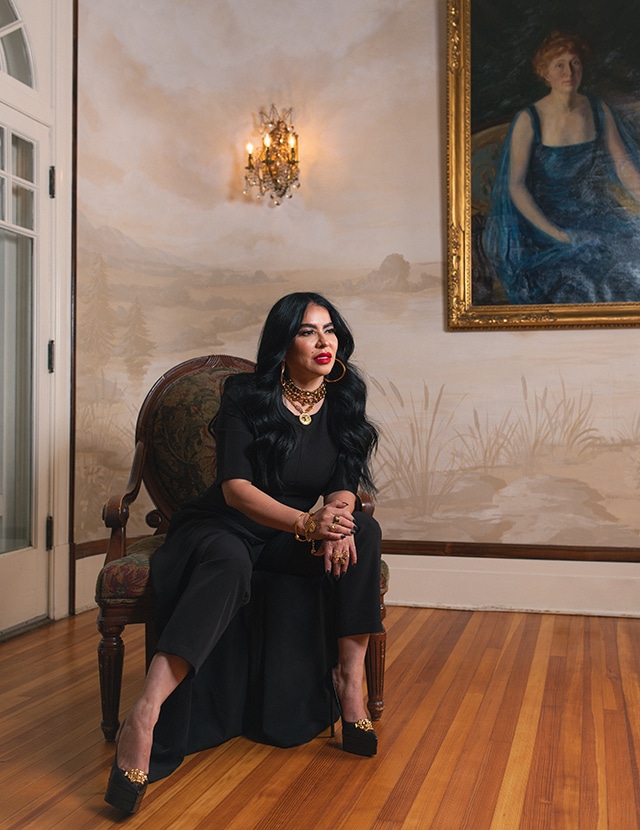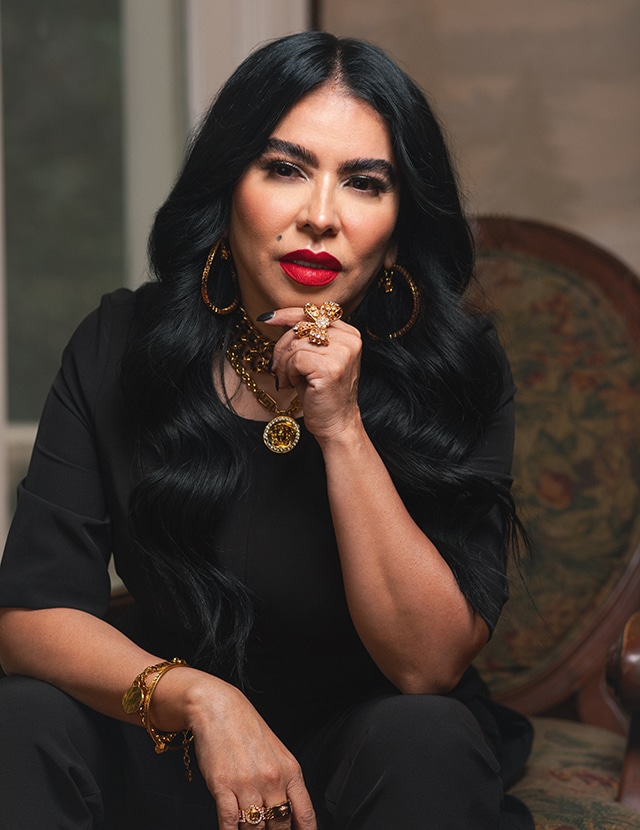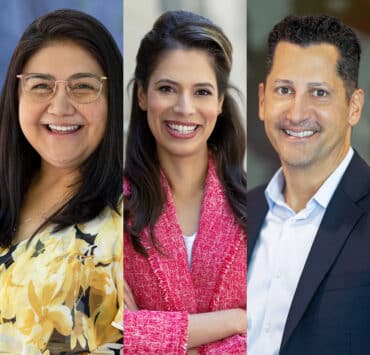|
Getting your Trinity Audio player ready...
|
Sometimes your path in life seems pre-determined. If your family has money and status, your future includes education, connections, and a wealth of opportunities. For the less well-off, success can be more of a dream than an actual possibility. Julissa Soto, CEO and founder of Julissa Soto Latino Health Equity Consulting, overcame the latter.
Her story began twenty-four years ago with her entry to the US from her native Michoacán, Mexico, via sixteen hours in the trunk of a car. “My then-husband brought me into the US that way, while my children were able to enter legally,” she recalls. “I immediately had to deal with the differences between new immigrants and what I call US Latinos—those who knew the ropes and had become successful.”
One thing, though, remained constant: brutal beatings inflicted by her abusive now ex-husband. “Because I was undocumented, I was afraid of calling the police, and so just endured them until I woke up in the hospital,” she says. “My arms and legs were broken, and I had been in a coma.”
But an Anglo woman she calls her “white angel” helped her navigate the American healthcare system. “Without her, I wouldn’t have known the public health care system exists,” Soto explains. “I had no insurance, so I had been running to local emergency rooms. I didn’t know any better.”

“When your path seems hard and painful, you’re usually on the right track.”
Julissa Soto
Following her recovery, Soto set out to become a public health advocate for the Latino community.
The COVID-19 pandemic was her primary trigger for changing the status quo. The key to Soto’s work is healthcare equity. “To me, that means everyone has the same opportunity for access to care,” she says.
In early 2022, 77 percent of Colorado’s population was vaccinated, and about 39 percent were Latinos, according to figures from the Colorado Department of Public Health and Environment. “Many providers believed Latinos were vaccine-hesitant, but I knew the problem was access,” Soto says.
She organized the first of many “Vaccine Sundays”: church-based events where she addressed the congregation about the need for getting the shots and invited everyone to a vaccination clinic on church grounds.
Her program was a smash.
“The state sent us one clinic bus, but we ran out of vaccines in the first four hours. We had to call for two more buses,” she says. “By 11:00 p.m. that night, we had vaccinated 1,279 Latinos. I later said to the healthcare providers, ‘Does this look like hesitancy to you?’”
Since then, she’s been the engine behind the vaccination of more than 24,000 Latino adults, youth, and children in her community. Soto continued working with other community groups and the state to hold pop-up clinics at neighborhood fairs and parties, churches, schools, and even Latino grocery stores. Within a few months, her programs distributed 130,000 home COVID-19 test boxes and 70,000 masks.

Her keystone program—“One Vaccine, One School at a Time”—was modeled after Vaccine Sundays. Providers and families meet at local schools for routine childhood immunizations and parents learn about opportunities to receive additional care.
The program exemplifies Soto’s reliance on cultural validation, as well as her work as a “transcreator.” “Cultural validation creates genuine relationships with communities and meets communities where they are,” Soto explains. “It’s about connecting with people authentically and speaking in languages they use, but not just translating information from English to Spanish.”
She cites one Coloradan school-age program originally named “Shots for Tots.” It sounds cute to American ears, Soto explains, but a straight translation could be fraught with potential misunderstandings for non-native speakers—shots of tequila? Gunshots? Rebranding it as “One Vaccine, One School at a Time” conveys the essential information more clearly.
While some have labeled her as a “disruptor,” Soto sees herself more as a change-agent. “That’s why I started my business,” she says, “to replace the old ways with better approaches to public health.”
And her approach has gained plenty of traction. Colorado Governor Jared Polis proclaimed September 20, 2021, as “Julissa Soto Day,” and her advocacy activity has been covered by NPR, Time magazine, the American Public Health Association’s Public Health, Religion and Spirituality Bulletin, and a documentary film from the Colorado Cross-Disability Coalition.
Soto hosts Prevention is Health on Tigre Radio, and her initial journey through the thicket of the US healthcare system was the subject of Mexicanos Exitosos, a documentary produced by Mexican television channel as part of a series that spotlighted the stories of Mexicans who have made it in America.
It’s been a long haul for Soto, but a fruitful one. And she offers some insights to immigrants who want to pursue their professional careers in the US.
“Equity is for everyone. That’s what I’m aiming for.”
Julissa Soto
“Don’t let people tell you how far you can go,” she affirms. “Richard Montañez, who was instrumental in the development and launch of Flamin’ Hot Cheetos, was hired as a janitor and eventually rose to vice president of multicultural sales and community promotions for PepsiCo North America.
“People will often say ‘no’ to your new ideas,” she continues. “Don’t let their attitude keep you down. And don’t be afraid to persevere; when your path seems hard and painful, you’re usually on the right track.”
Despite her many accomplishments, Soto admits there’s still plenty more to do. And she has no intention of easing up until she attains her goal. “Our public health systems need to be easier and better for everyone. I’m focusing on the needs of Latinos and Spanish-speaking immigrants, but the result will be a public health system that really cares about all of us. Equity is for everyone. That’s what I’m aiming for,” she said.

